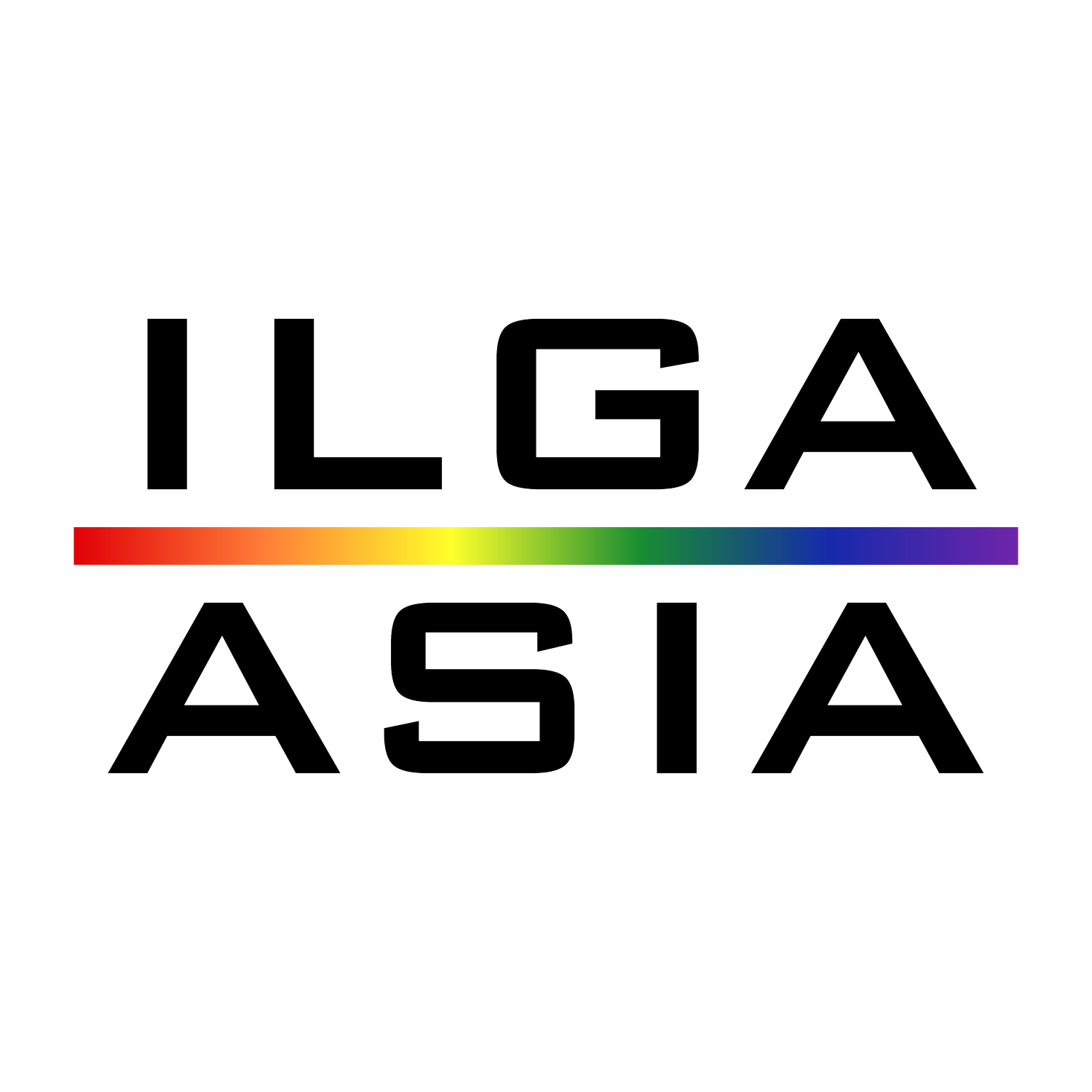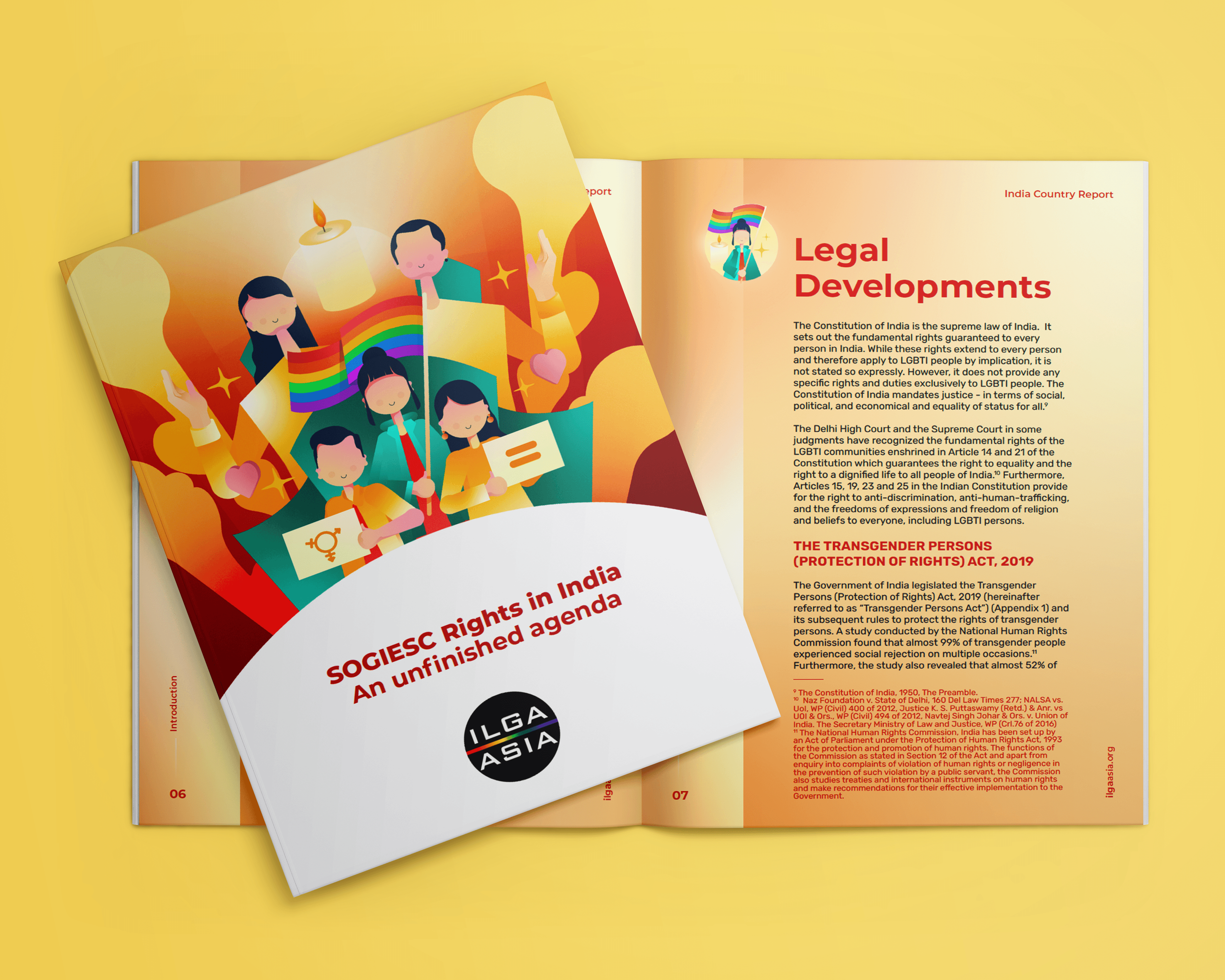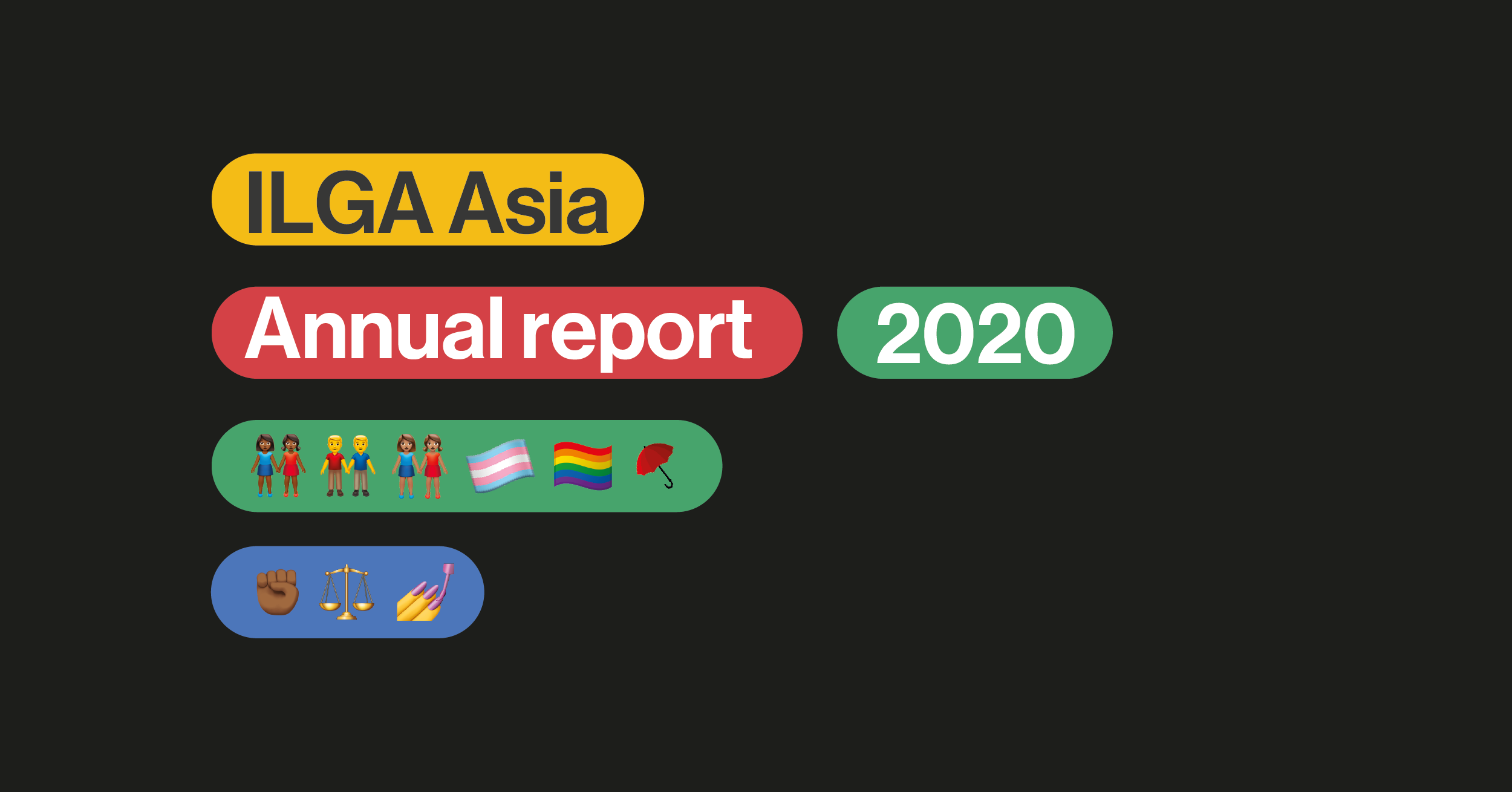Country Report on SOGIESC Rights In India: An Unfinished Agenda
19 April 2022
Executive Summary
In the past decade, there have been many developments pertaining to LGBTIQ rights in India. While there is growing acceptance of LGBTIQ identities in society in the current generation, challenges related to acceptance and inclusion continue in formal and informal institutions like families, schools, and workplaces. The acceptance also varies from urban to rural areas where the literacy rates are quite low.
The developments have been most prominent in the legal landscape. While the rights provided under the 1950 Constitution of India extend to all persons, including LGBTIQ people, they were implicit. Subsequent judgments and the proactive role played by the judiciary have led to the explicit recognition of these rights. These judgements have led to the takedown of Section 377 (which prescribed punishment for consensual sexual relations between people of same-sex), recognition of self-determination rights of transgender people, and a ban on sex-reassignment surgeries in one state of India, among others. Recently various high courts have played a positive role in directing the government to ensure a supply of necessities to transgender people and persons with HIV during the outbreak of the COVID-19 virus.
The Government of India has also legislated its first law to address the basic violations of human rights against the community. The Transgender Persons Act seems to be the beginning of efforts toward the protection of LGBTIQ people. Other developments including the government order allowing trans people to use a restroom of their choice and the establishment of Transgender Welfare Boards and other welfare policies by various federal governments. However, this law is not without its infirmities. The legal landscape still lacks a viable protection mechanism for LGBTIQ people and there exist several voids which hinder the recognition of their basic civil rights like the right to marry or adopt. The criminal law also adheres to the traditional conception of gender, resulting in unequal treatment of LGBTIQ people in the grievance redressal process.
Despite these developments, the stigma associated with gender and sexual identity has created many challenges for LGBTIQ communities. These challenges include non-acceptance in society, violence by partners, physical and sexual assault by state and non-state actors, discriminatory treatment in educational and medical institutions, illegal detention, corrective rapes, non-recognition of personal rights to marry or adopt, etc. These challenges continue to create barriers for them. While there is a visible change in the attitudes of MNCs towards employing LGBTIQ people, these changes are intended more towards seeming inclusive. Meanwhile, in the absence of equal opportunities, these people continue to work with small ration shops, or as beggars or sex workers. The latter also puts them on the wrong side of the law as such practices are not legal in India.
The issues faced by transgenders in the traditional commune system are also very complex and brutal. The commune system was conceived as a protection mechanism for transgender people but has degenerated into various forms of bonded labour, coercion, extortion, and violence. It is a hierarchical system where those at the base are forced to pay a tax called ‘moorcha’ or ‘kamaayi’. Failure to pay this tax can have very adverse and serious consequences on the life, liberty, dignity, and safety of transgender persons. Significant sections of this system have ended up becoming a form of slavery only because there is no escape for people trapped in it. As such, these people end up being dependent predominantly on sex work and/or begging to subsist and pay the taxes which left them vulnerable to physical and sexual violence, and sexually transmitted diseases. They also become emotionally and physically distraught in exchange for a meagre sum of money, most of which would be used as taxes.
Civil society organisations that have played a very positive role in the LGBTIQ movement have their challenges which include legal hassles, financial restraint, mobilisation of communities that are dispersed because of social, cultural and language barriers, and the lack of human resource expertise. These organisations have employed various strategies to face these challenges like organising consultations with families, raising awareness, and engaging in legislative and policy advocacy.




